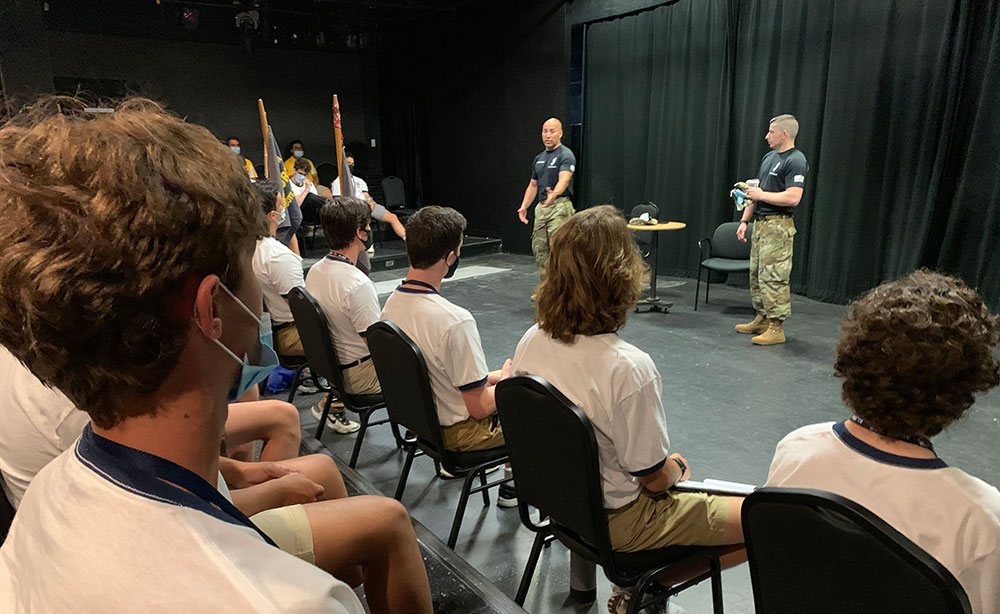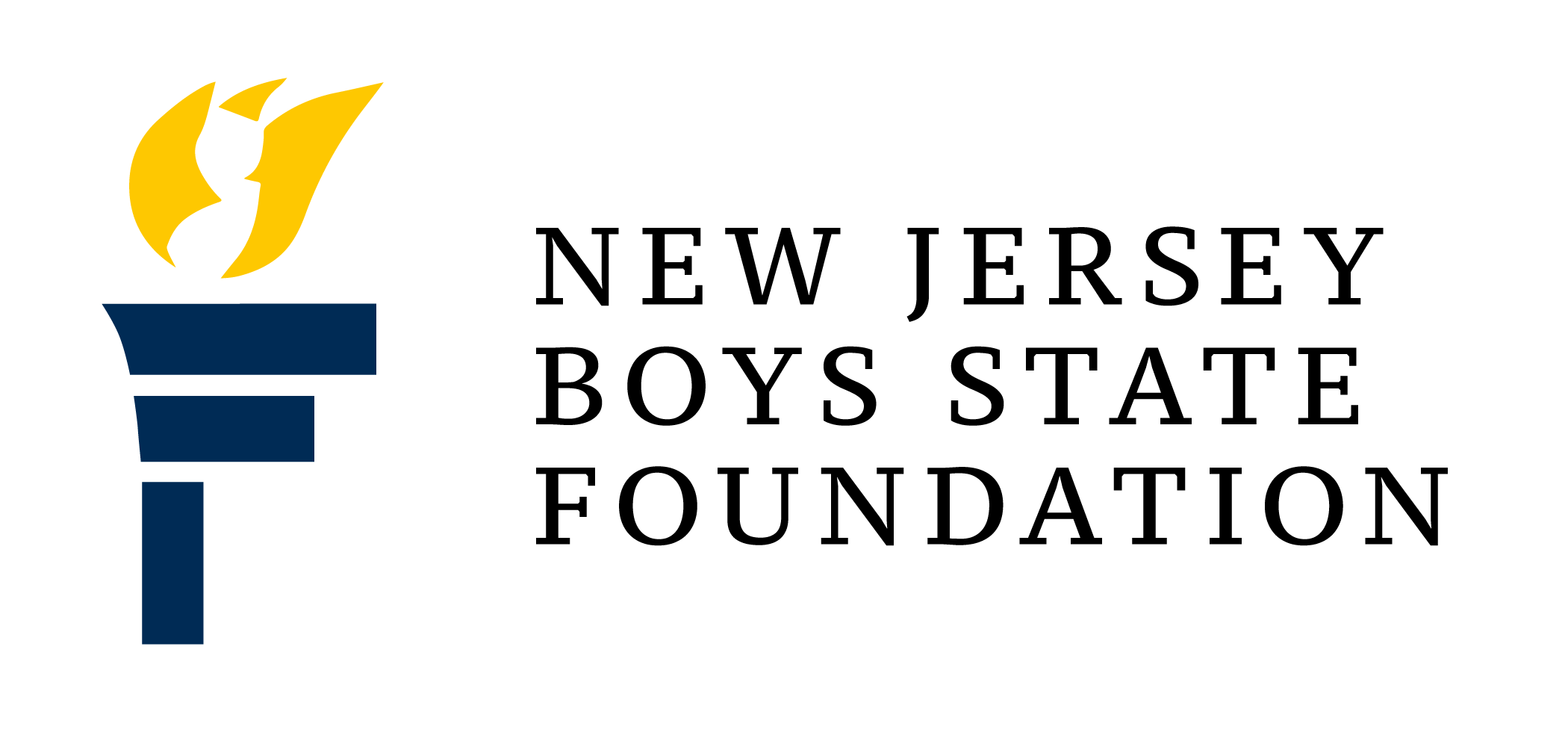News Archive

The most interesting comment from one of my college professors was not related to any subject but rather to the space outside our room. "The quad changed," he said. "There used to be people sitting on the lawn, talking, studying, playing frisbee…now there's nothing. Cell phones changed it completely." At that point in my college experience, I hadn't seen anyone stay on the quad for any length of time. It was an intersection point, a set of pathways between classrooms, dormitories, and the library. If people hung out with each other, it wasn't happening on the quad.
The quads at Rider University this week are similarly used as intersections. (In fairness, we and Rider ask statesmen to stay off the grass and not trample it.) Statesmen traverse the concrete pathways, going from one building to another. They hang out with each other in the lounges, inside their own rooms, or sometimes through text or social media.
Due to the nature of American Legion Jersey Boys State, where you are closely tied to cities and counties, most of that interaction will be in a city. There's not really a reason to go talk to someone else. Cities and counties tend to be natural quasi-bubbles. This isn't necessarily bad: the cities and counties often end up as tight communities as a result, and not having a ton of diversions in other cities means that cities can focus on the work of running a city, passing legislation, and getting the manual done. But it does limit your focus to the people immediately around you.
For this reason, we usually have at least one person who has served or is serving in the military in each city as one of the counselors. In the past, we often had one American Legion member on staff, but as time has progressed, we usually have someone who's currently serving.
This sometimes takes people by surprise. "Politics camp" is one idea, "military camp" is another. To many, the two are completely separate, and I've gotten used to seeing people's slight unease when they hear that a military recruiter will be helping out for the week. Yes, yes, it's an American Legion program, but that's not really the focus, is it? They're more focusing on how to campaign and be part of government, right?
And, if we're being honest, that's understandable, given how little we engage with the military. With fewer and smaller wars, the amount of people needed to serve and fight is less than before. There's simply not as many military members as there were before. In 1950, after World War II, more than 1 in 3 men were veterans. Today, about 1 in 8 men are. The amount of veterans in politics has followed similar paths. From 1945 through 1993, every U.S. President had served in the military. In the last 30 years, only one has. The idea of someone resigning their Senate seat to serve in the military as Henry Cabot Lodge Jr. did is hard to comprehend today. The military occupies a different sphere of life than most of everyone's lives today. We hear about it, but we don't often interact with people who served.
That's different at American Legion Jersey Boys State, and that's intentional. Part of it is because we are an American Legion program and are happy to have the help of the Legionnaires who serve on our staff. The Legion started and built this program, and every one of us on staff who isn't a Legion member passed through this program before and owes them a debt of gratitude. And some of this is because when you're teaching civics and government, the military isn't too far from the picture.
But mainly, it's because we believe it's good for the statesmen and the military to know and interact with each other. For the statesmen, this week is often one of the first broadenings of perspectives they're having as near-adults. It's a good setting to be introduced to a military member and get to know them, especially as some of them weigh the costs and benefits of different career options. The week of Boys State gives them a taste of that through retreat ceremonies, guidon bearers, a structured schedule and chain of command, and the daily Military PT Challenge, but these are tastes. It's a relaxed context where they can start understanding more. They get to find out what the military member has seen, what they've thought of the experience, and why they continue to serve.
But this isn't just beneficial for the statesmen. The military members get to interact with the next generation and be ambassadors for their division. Also, it's a chance to remember why they serve and who they serve for. A warrior needs something and someone to defend or fight for. ALJBS offers both: the program reinforces the value of this form of government while the statesmen are a living example of what is being defended. The military members who've participated all walk in with no concept of the week to start, but by the end, they all get it.
Tuesday night is when everyone gets it. The entire assembly watches a presentation about D-Day that begins with the opening of Saving Private Ryan followed by an ABC News special about the D-Day attack—and then the veterans on staff go on stage. The applause for that moment is the loudest, longest cheer you will hear any time during the week of Boys State. That's when it hits: these are the people who served. This is why they served. From that moment on, the interactions between the Legionnaires or military members and the delegates change. Where there was respect, there is now curiosity.
As young men mature into adults, they will have to learn how to harness their strength. There are many things and many people who are more than happy to use someone's strength, but many fewer deserve it. Learning to identify who to serve and how to serve is a critical lesson. For many years, the military has taught those lessons to its own. We're trying to teach them to our own here this week, starting with love of country (which we'll talk more about tomorrow). Who else would be better teachers for this than the ones who have demonstrated it for us for years in their sacrifice and their service? Why wouldn't we want them on staff, mixing with the statesmen? We may not all serve our communities in battle, but we all must serve our country. This week, we learn from the best at that. Hoo rah.


